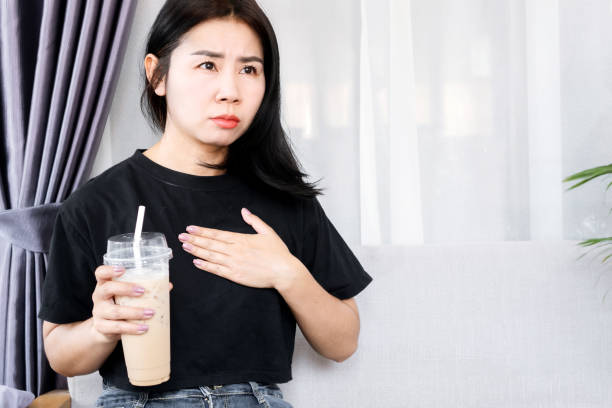Palpitations are a common condition that affects many people. They can be described as a feeling of fluttering, skipping or rapid heartbeat in the chest. Palpitations after eating can be a cause for concern as they can be a symptom of an underlying medical condition.
The causes of palpitations after eating are numerous and can include anything from indigestion to heart disease. Some of the most common causes of palpitations after eating include:
Overeating: Eating large meals or consuming too much caffeine or alcohol can cause the heart rate to increase, resulting in palpitations.
Food sensitivities: Certain foods, such as chocolate, coffee, and spices, can trigger palpitations in some people.
Gastrointestinal issues: Digestive problems such as acid reflux, irritable bowel syndrome or other digestive disorders can cause palpitations after eating.
Hormonal imbalances: Hormonal imbalances, such as an overactive thyroid, can cause palpitations after eating.
Anemia: Anemia is a condition in which the body does not have enough red blood cells, causing the heart to work harder to pump blood throughout the body.
Cardiac conditions: Heart disease, arrhythmia, and other heart conditions can cause palpitations after eating.
The symptoms of palpitations after eating can vary from person to person, but some of the most common symptoms include:
Rapid or irregular heartbeat
Chest pain or discomfort
Shortness of breath
Lightheadedness or dizziness
Sweating or shakiness
Nausea or vomiting
If you experience palpitations after eating, it is important to seek medical attention to determine the underlying cause. A doctor may perform various tests, including an electrocardiogram (ECG) or blood tests, to determine the cause of your palpitations.
Once the underlying cause of your palpitations has been determined, a treatment plan can be created. The treatment for palpitations after eating will vary depending on the underlying cause, but some common treatments include:
Lifestyle changes: Making lifestyle changes, such as reducing caffeine and alcohol intake, can help to reduce the frequency of palpitations.
Medications: Certain medications, such as beta-blockers, can be used to slow down the heart rate and reduce the frequency of palpitations.
Surgery: In severe cases, surgery may be required to treat certain heart conditions that are causing palpitations.
Avoiding triggers: Identifying and avoiding foods or activities that trigger palpitations can help to reduce their frequency.
Stress management: Managing stress through techniques such as relaxation, deep breathing, or exercise can help to reduce the frequency of palpitations.
In conclusion, palpitations after eating can be a sign of an underlying medical condition and should be taken seriously. If you experience palpitations after eating, it is important to seek medical attention to determine the underlying cause and receive proper treatment. By making lifestyle changes, taking medications, avoiding triggers, and managing stress, you can help to reduce the frequency of palpitations and live a healthier, happier life.

 Home
Home Health
Health Diet & Nutrition
Diet & Nutrition Living Well
Living Well More
More












